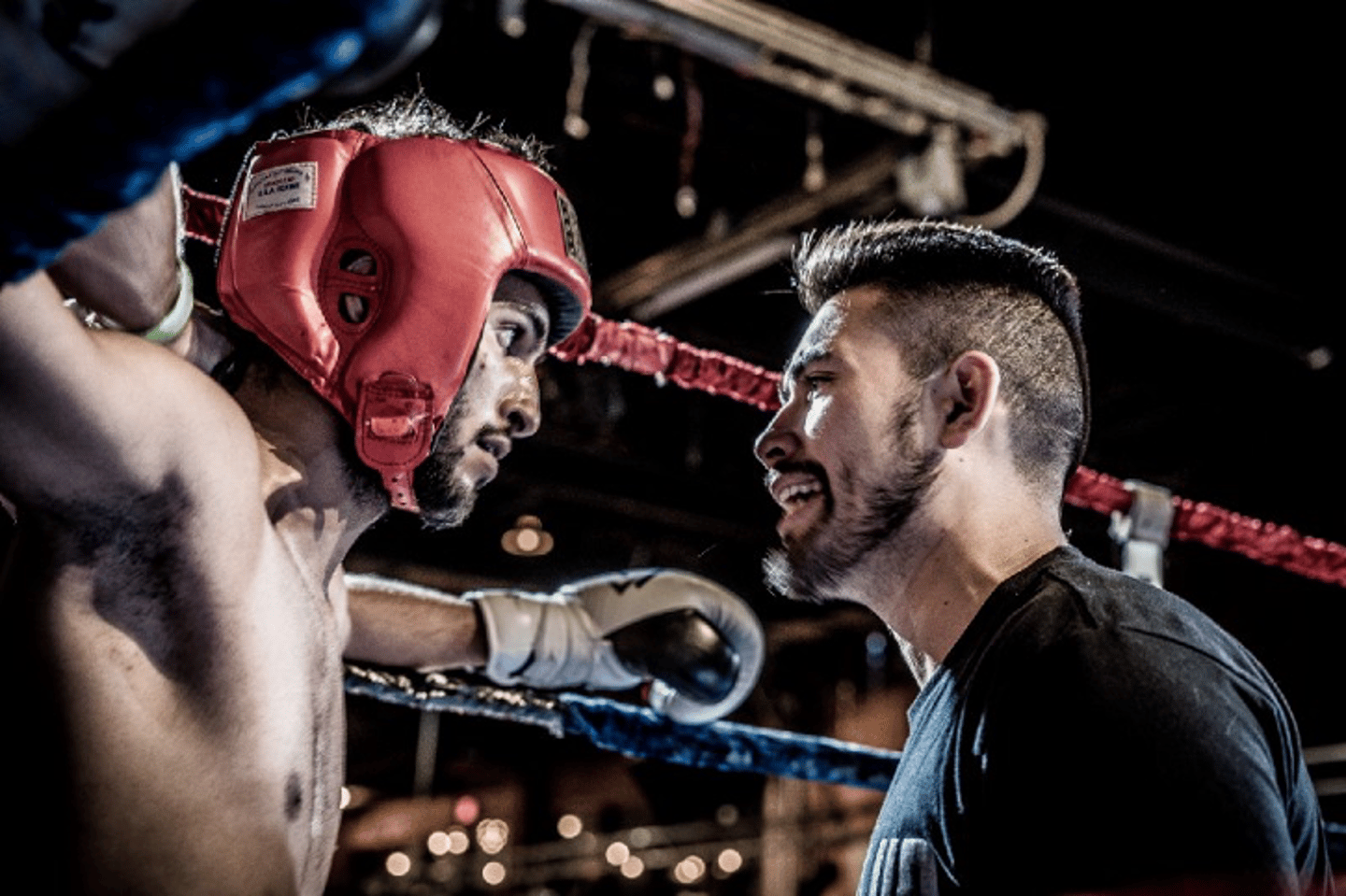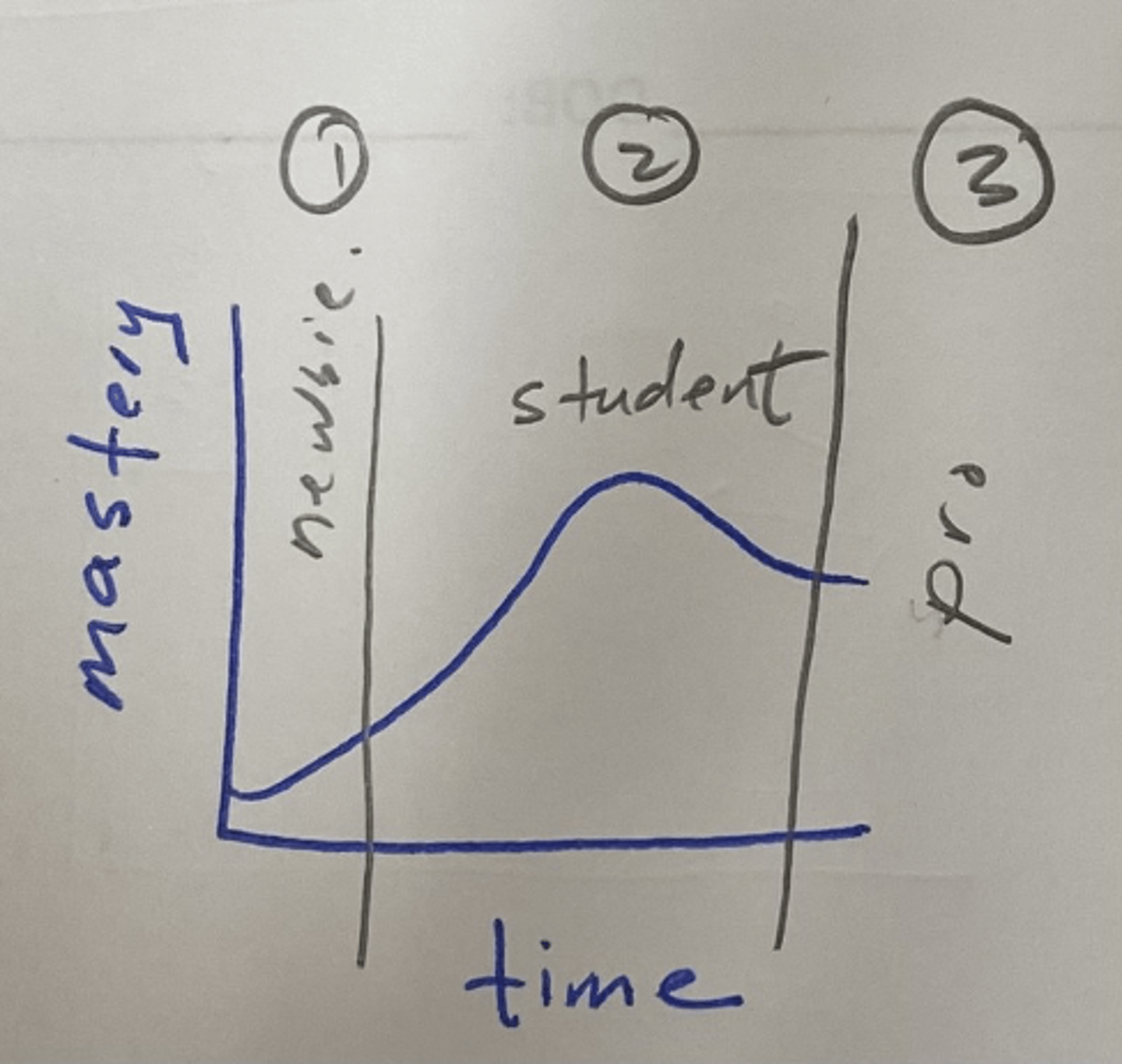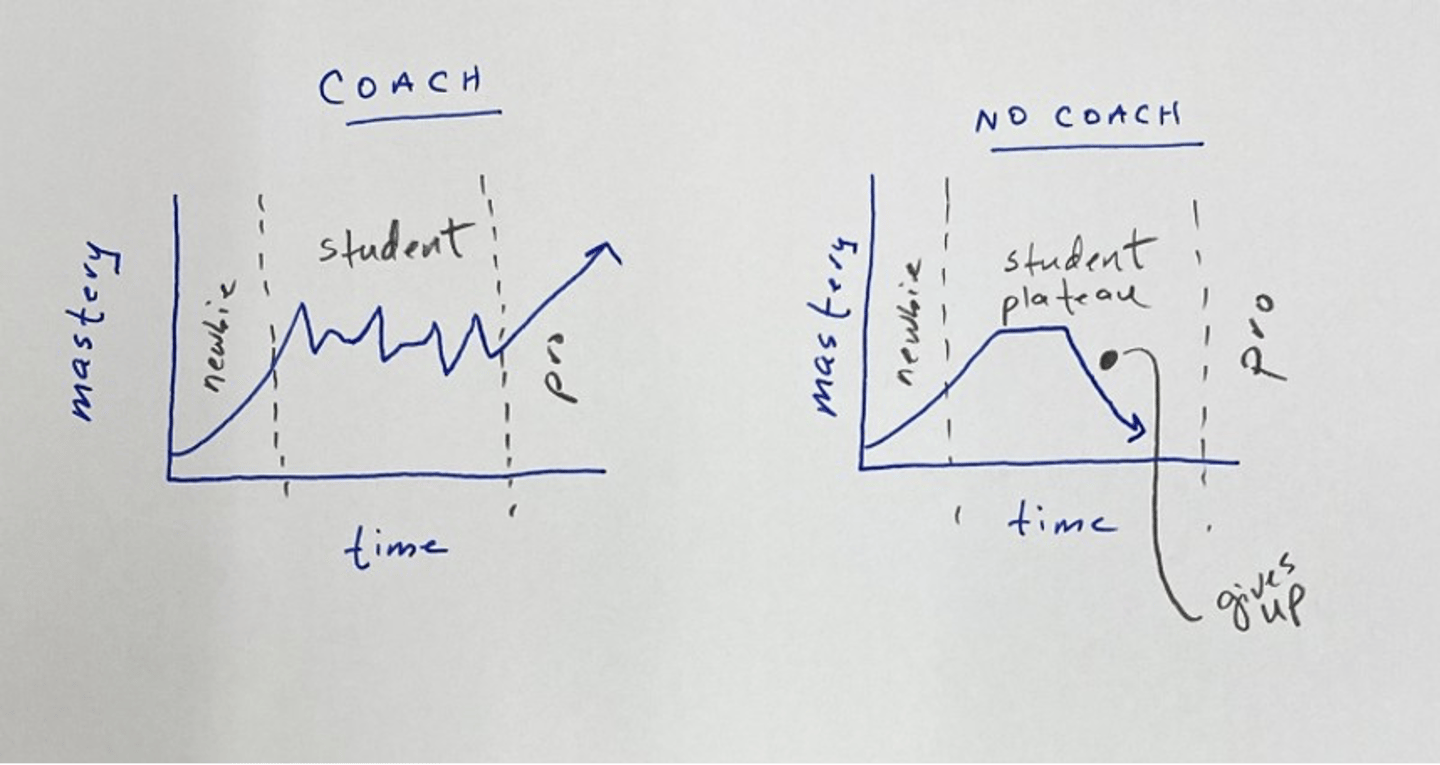Newbie to pro: are you good enough at something to need a coach?
In surgeon Dr. Atul Gawande's TED talk titled Want to Get Great at Something: Get A Coach, he convinces us of the importance of having a trusted third party observe us so we can take ourselves apart and be pieced back together, only stronger. He speaks to his operating room complications data declining after having his mentor watch over him in the back half of his career. The fact that pros need coaches got me thinking.
At any stage in skill development, having a coach is a good idea.
Here’s why: there is good reason we should avoid critiquing our own recorded singing voice or avoid self-diagnosing our medical conditions. We should also review our work before clicking ‘send’. We are biased. We have a disconnect between the absolute truth and where we currently are, good or bad. Luckily, coaches can unemotionally align us with reality. They are unattached to the history of work that led us to that point and can close the many excuse-doors we invent in our heads. Distilled even more, what if there were only 3 phases of skill development?
The Mastery Curve and Its 3 Stages
As we learn any skill, we follow a mastery curve. This non-linear curve has three broad stages along an investment in time. First, the newbie follows a steep improvement path rich in motivation and progress, followed by the student who flies through turbulent air until becoming a pro, who is matched by less than one per cent of the planet’s population.
While a coach is integral in all 3 stages, the student phase requires special attention. This is the phase we spend the most time in and the least likely we are to seek help in, since the world expects us to be good. In the majority of our pharmacy careers, we practise in the student phase. University and placements pull us through being newbies and we are quickly forced into positions of supervisors, managers and business owners but have not yet fully mastered the complex and multi-faceted craft of being these things all at once.
Humbly, we must find coaches during this student phase to help us navigate the ups and downs of day-to-day work life since coaches are not readily available after graduation.
Once we pass the newbie phase, others think we are good enough to operate solo. But the truth is, this is where we are good enough to make significant impact and thus need a coach to optimize that impact.
Here is the key difference between a student with a coach and that same student steering his own ship:
The End Result
The coachless student gives up after lacking progress. He finds no net gain after years of investing time in new skill development. He has to face the world alone. No one was there to pick him up upon falling or burst his bubble when he got too confident. He accepts plateaus, has no comparator to honestly judge his progress and does not utilize building blocks established from the past because he is blind to analogous challenges and how to overcome them.
The coached student uses the luxury of a neutral third-party observer to help him make countless micro-adjustments before they become problems. When he falls, the coach is able to point to challenges he overcame in the past to reframe his mindset. When he plateaus, the coach is able to dispense a new twist. He can unlock progress since his time spent at a plateau does not mentally overburden him.
Pharmacists are coaches
Whether you like it or not, optically you are the expert. Your words and actions drive behaviour change and it is up to you to provide the feedback that allows staff to navigate their own individual mastery curves. The individual curves average out to a line of best fit that represents your average team mastery. But who will coach the pharmacist?
Coaches know when to kick and when to coddle.
Coaches see answers when we are blind.
Are you good enough at something to need a coach?










